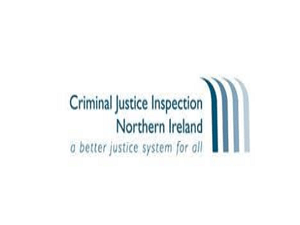
by Q Radio News
The Chief Inspector of Criminal Justice says the mechanisms to monitor violent and sexual offenders when they are released from prison are under "significant pressure" in Northern Ireland.
A report has been published today entitled 'Lawful Duty' which looks at Public Protection Arrangements Northern Ireland (PPANI).
The PPANI is a multi-agency approach between the police, probation and prison services in conjunction with the NI Housing Executive and Health and Social Care Trusts, to manage sexual and violent offenders moving back into the community and the risk posed to the public.
According to the report, one of the main challenges is the increasing number of Category 1 offenders and PSNI staff shortages.
The Chief Inspector of Criminal Justice, Brendan McGuigan said, “Inspectors identified that while police officers engaged in this area of work were well motivated, at the time of inspection fieldwork, sickness and other absence levels along with staff turnover and the need to manage increasing numbers of cases, were causing considerable pressure.
"Similarly, prison service staff were frequently extracted from PPANI duties to undertake other responsibilities within the prison environment,” said Mr McGuigan.
"The PPANI caseload was also found to have been steadily increasing, with the number of Category 1 offenders - those assessed to pose a lower level of risk to the public and whose management fell primarily to the police alone - rising by around 30% from 1,000 in 2011 to about 1,400 in October 2018.
“Inspectors were concerned that in the face of a lack of available officers, a need for more technological training and the prospect of the ongoing and increasing demand for the police to deal with significant numbers of Category 1 offenders, the current policing resource model was unsustainable and presented an immediate risk which must be addressed."
“As a result we have recommended the Police Service of Northern Ireland (PSNI) should within the next six months develop an action plan to sustain the resourcing of its Public Protection Units and a system to cope with the demands of Category 1 offenders.”
🎥 NI Public Protection Arrangements, which monitor violent and sexual offenders when released from prison, are under “significant pressure”. Chief Inspector or Criminal Justice blamed challenges on PSNI staff shortages coupled with increasing caseloads. pic.twitter.com/oPiFsD8xPa
— Q Radio News (@qnewsdesk) October 23, 2019
Meanwhile, Mr McGuigan says the risks posed by Category three offenders were being managed well.
“During this inspection we found levels of engagement between the various partner agencies remained high and that progress has been made in relation to governance arrangements.
"We also found offenders hostels continued to provide a very important public protection service in support of PPANI.
"Category Three offenders - those assessed as posing the greatest level of risk - were rigorously managed by the co-located Public Protection Team made up of police, probation and social services staff with their cases reviewed every 16 weeks at Local Area Public Protection Panels."
The Chief Inspector has also called for an action plan to be developed for the roll out and adoption of a multi-agency information sharing system by all of the core PPANI agencies.
“Inspectors identified that the police, probation and prison services in England and Wales had access to the Violent and Sex Offender Register (ViSOR) database to enable them to manage public protection cases, yet in Northern Ireland, the ViSOR database was only used by the PSNI.
“As there was no obvious reason for the other agencies not accessing either this register or a similar type of database, we have recommended that all PPANI agencies should have access to this type of system.
Mr McGuigan also recommended that the PSNI should be able to access and interrogate technology, such as mobile devices and computers held by PPANI offenders, in order to enable officers to identify if their electronic equipment was being used appropriately.
Finally, the Chief Inspector said he believed the introduction of legislation 11 years ago which placed the requirement for PPANI agencies to cooperate on a statutory footing had been beneficial.
He suggested it provided a template from which others could learn but believes there can be no "complacency" from PPANI agencies collectively and they must strive to "continue best practice."


 Swann refuses to rule out resigning if budget is not changed
Swann refuses to rule out resigning if budget is not changed
 Fresh inquests ordered into deaths of 15 killed in McGurk’s bomb blast
Fresh inquests ordered into deaths of 15 killed in McGurk’s bomb blast
 Trial ends after man accused of murder of young showjumper is found dead
Trial ends after man accused of murder of young showjumper is found dead
 A brief hearing and chaotic scenes as Donaldson makes first court appearance
A brief hearing and chaotic scenes as Donaldson makes first court appearance